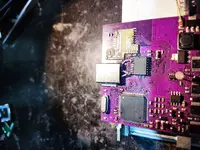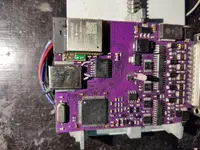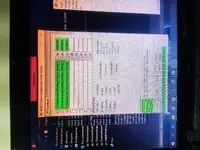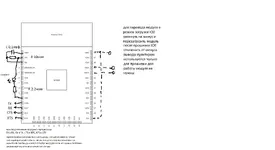Overview
ESP32 Flash Utility is a preconfigured package based on the official Espressif Download Tool. It provides a simple workflow to program ESP32 families and ESP8266 with multi-file flashing, chip auto-detect and clear progress logs. The bundle also includes a practical example project for adding an ESP32 wireless module to a Scanmatic V2 adapter.

Highlights
Package contents
Compatibility notes
Designed for Espressif chips including ESP8266, ESP8285 and ESP32 variants S2 S3 C2 C3 C6 H2 and D2WD. Firmware structure and offsets depend on the target project. Use the included example as a reference only. Availability of features like high-speed modes can vary by module and board design.
Basic usage
Operating systems
Minimum system requirements
Disclaimer





ESP32 Flash Utility is a preconfigured package based on the official Espressif Download Tool. It provides a simple workflow to program ESP32 families and ESP8266 with multi-file flashing, chip auto-detect and clear progress logs. The bundle also includes a practical example project for adding an ESP32 wireless module to a Scanmatic V2 adapter.
Highlights
- Supports ESP32 S2 S3 C2 C3 C6 H2 plus ESP32 D2WD and ESP8266 ESP8285
- Multi-segment flashing for bootloader partition table and app binaries
- Chip ID and flash size detection with selectable SPI mode and speed
- COM port and baud rate control with verified write and progress bar
- Example wiring and photos for ESP32 WROOM-32 retrofit to Scanmatic V2
- Portable build with ready folder structure for quick start
Package contents
- flash_download_tool_3.9.6\ — Espressif GUI flasher
- flash\ — sample firmware binaries for testing
- ESP32 to Scanmatic V2 adapter.lay6 — board layout
- Wiring.png — wiring diagram for flashing and normal run
- IMG_20240523_230923.jpg — adapter soldering photo
- IMG_20240524_224754.jpg — WROOM-32 module installation photo
- IMG_20240526_224430.jpg — flashing session screenshot
- IMG_20240526_224500.jpg — successful finish screenshot
Compatibility notes
Designed for Espressif chips including ESP8266, ESP8285 and ESP32 variants S2 S3 C2 C3 C6 H2 and D2WD. Firmware structure and offsets depend on the target project. Use the included example as a reference only. Availability of features like high-speed modes can vary by module and board design.
Basic usage
- Launch the tool and select the target chip from the ChipType list
- Load bootloader, partition table and application bins with correct addresses
- Choose SPI mode and flash speed that match your module and click START
- Wait for the log to confirm a verified write and reset the device
- For the Scanmatic V2 example follow the wiring diagram and remove boot strapping after flashing
Operating systems
- Windows 11 64 bit
- Windows 10 64 bit
- Windows 10 32 bit
Minimum system requirements
- CPU Dual core 2.0 GHz or higher
- RAM 4 GB or more
- Storage 200 MB free for binaries and logs
- USB UART interface for flashing
- Administrator rights for driver installation and serial access
Disclaimer
- Source of Files. All software and resources in this post are collected from public and open sources on the internet. We do not claim authorship or ownership.
- File Hosting. This forum does not host files. All links point to third party public cloud storage. We are not responsible for external content.
- User Responsibility. Software is provided for educational and evaluation purposes only. You use it at your own risk. Authors of the post and forum administration are not liable for any damage.




